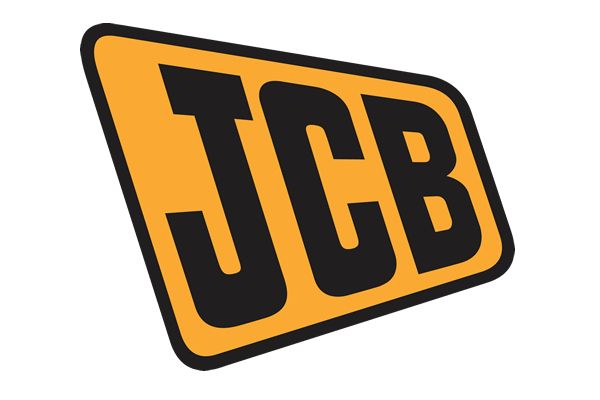JCB Digger Info

Facts about JCB
JCB Company is a manufacturer of equipment for construction, agriculture, waste handling, and demolition, based in Rocester, England. It produces over 300 types of machines, including diggers (backhoes), excavators, tractors, and diesel engines, across 22 factories spanning Asia, Europe, North America, and South America; its products are sold in over 150 countries.
JCB Company History
JCB Company was founded by Joseph Cyril Bamford in October 1945 in Uttoxeter, Staffordshire, England. He rented a lock-up garage 3.7 by 4.6 m (12 by 15 ft). In it, using a welding set which he bought second-hand for £2-10s (= £2.50) from English Electric, he made his first vehicle, a tipping trailer from war-surplus materials. The trailer's sides and floor were made from steel sheet that had been part of air raid shelters. On the same day as his son Anthony was born, he sold the trailer at a nearby market for £45 (plus a part-exchanged farm cart) and at once made another trailer. At one time he made vehicles in Eckersley's coal yard in Uttoxeter. The first trailer and the welding set have been preserved.
JCB's first welding set
The first vehicle JCB made (a farm trailer)
In 1948, six people were working for the company, and it made the first hydraulic tipping trailer in Europe. In 1950, it moved to an old cheese factory in Rocester, still employing six. A year later, he began painting his products yellow. In 1953, his first backhoe loader was launched, and the JCB logo appeared for the first time. It was designed by Derby Media and advertising designer Leslie Smith. In 1957, the firm launched the "hydra-digga", incorporating the excavator and the major loader as a single all-purpose tool useful for the agricultural and construction industries.
In 1960, JCB's hydraulic tractors entered the North American market, proving a long-lasting success. JCB became, and still is, the brand leader in the world. By 1964, JCB had sold over 3,000 3C backhoe loaders. The next year, the first 360-degree excavator was introduced, the JCB 7.
In 1978, the Loadall machine was introduced. The next year, JCB started its operation in India. In 1991, the firm entered a joint venture with Sumitomo of Japan to produce excavators, which ended in 1998. Two years later, a JCB factory was completed in Pooler near Savannah, Georgia in the US, and the next year a factory was opened in Brazil.
21st century
In December 2000, JCB was fined €39.6m by the European Commission for violating European Union antitrust law. The fine related to restrictions on sales outside allotted territories, purchases between authorised distributors, bonuses and fees which restricted out of territory sales, and occasional joint fixing of resale prices and discounts across different territories. JCB appealed the decision, with the European Court of First Instance upholding portions of the appeal and reducing the original fine by 25%. JCB appealed to the European Court of Justice but this final appeal was rejected in 2006, with the court slightly increasing the reduced fine by €864,000.
Production of the first engine designed and manufactured by JCB, the JCB444 diesel engine, began in 2004. In 2005, for the first time in nearly forty years, JCB bought a company, purchasing the German equipment firm Vibromax. In the same year, the firm opened a new factory in Pudong, China. By 2006, the firm had 4000 employees, twice what it had in 1975.
Planning of a new £40 million pound JCB Heavy Products site began following the launch of an architectural design competition in 2007 managed by RIBA Competitions, and by the next year, the firm began to move from its old site in Pinfold Street in Uttoxeter to the new site beside the A50; the Pinfold Street site was demolished in 2009. During that year, JCB announced plans to make India its largest manufacturing hub. Its factory at Ballabgarh in Haryana, was to become the world's largest backhoe loader manufacturing facility.
JCB shed 2,000 jobs during the recession, but in 2010 it announced it was recruiting up to 200 new workers.
The company was a member of the CBI business lobby group until 2016. In October 2016, it was reported that JCB had left the CBI in the summer of 2016 following the Brexit vote. JCB has also been a significant donor to the UK Conservative Party; since 2007 JCB and related Bamford entities have given the party £8.1m in cash or kind. JCB chairman Anthony Bamford donated £100,000 to Vote Leave, the official pro-Brexit group.
The company promotes constructive play for children of all ages and has launched a website dedicated to encouraging outdoor activities for children and their parents - JCB Explore.
JCB Excavators
JCB now has its X Series, an updated version of the J series Tracked 360° excavators ranging from the JZ70 (7-tonne zero tail swing excavator) to the JS460 (46-tonne tracked excavator).
In 2008 at Con expo JCB revealed a new top range JS520 which included the new style paint job with rams painted black. Wheeled 360° excavators ranging from the JS130W to the JS200W. Machines can be produced with either monoboom or a triple-articulated boom In July 2020 the company's electric digger (19C-1E) was the winner of the MacRobert Award, the most prestigious prize for UK engineering innovation.
Fore more information on the JCB range of mini excavators click on this link:
https://www.jcb.com/en-gb/products/mini-excavators
Copyright © 2021 AC Digger Hire Surrey